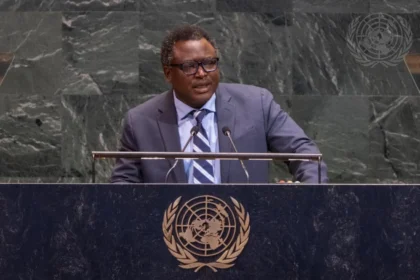TL Elder, a popular Kenyan activist, is alive. His real name is Mwabili Mwagodi. He vanished in Tanzania on July 23.
He had been working at Amani Beach Hotel in Kigamboni, Dar es Salaam. Unknown men dumped him in Lunga Lunga, near the Kenya-Tanzania border. That is over 400 kilometres from where he worked.
His family feared for his safety. His sister, Isabella Kituri, said men visited their home last year. They claimed to be from Kenya’s DCI and warned their parents to make Mwagodi stop protesting. “They promised consequences,” she said
TL Elder gained fame during the 2024 anti-Finance Bill protests. He led a protest during a church service attended by President Ruto in Nyahururu.
After his release, Mwagodi said men held him in a dark room. He said Tanzanian security officers questioned his political views. They asked why he was in the country. He believes they injected him with an unknown substance.
Doctors are treating him at Pandya Hospital.
His case is part of a growing trend in East Africa. Activists, journalists, and opposition voices face abductions, torture, and threats in Kenya, Uganda, and Tanzania.
The Commonwealth Lawyers Association condemned these acts. It said governments are using fear to silence critics.
Other victims include Maria Sarungi. Unknown assailants abducted her in Nairobi in January. Tanzanian authorities also abducted and tortured Boniface Mwangi and Agather Atuhaire.
Lawyer Ken Nyaundi called the abductions illegal and inhumane. “These are crimes under international law,” he said. “Justice will catch up with the perpetrators.”
TL Elder’s ordeal shows the danger of speaking out. But his voice, like many others, refuses to be silenced.
Also read: KNH Murder Suspect Linked to Mysterious Past and Missing Identity













